
Final Communiqué – DefendDefenders’ 20th anniversary celebrations
DefendDefenders’ 20th anniversary celebrations 4-5 November 2025

DefendDefenders’ 20th anniversary celebrations 4-5 November 2025
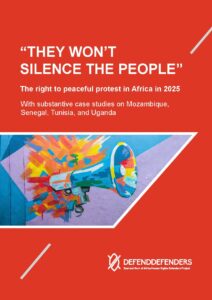
Protesting is part and parcel of the human experience. Across the world, people protest against injustice, discrimination, and power abuse. They protest for justice, human rights, and accountability. Thinkers such as Henry David Thoreau and Martin Luther King Jr. stressed that everyone carries a moral duty to resist unjust systems and unfair laws. This remains true.
In Africa, as elsewhere, people demonstrate to defend their rights and the rights of others, or to push for change. Since progress can only be achieved if ideas circulate freely, people should be able to express even controversial, non-conformist views. Those holding positions of power should not silence critical voices or prevent them from peacefully assembling and organising themselves. This is particularly important as historically marginalised groups, who have often been excluded from political decision, seek to express grievances and set issues on the political agenda by protesting.

In a letter released today, civil society calls on the

Hello Friends, September was a busy month for us, from advocacy to capacity building. At the start of the month, AfricanDefenders hosted its annual Ubuntu Hub Cities Coordinators Workshop in Durban, South Africa, while there, I found myself revisiting a question: Why must African human rights defenders seek safety outside the continent?

Sulieman Mujuni Baitani – Zanzibar National Coordinator | Tanzania Human Rights Defenders Coalition (THRDC). Sulieman Mujuni Baitani is a committed human rights defender whose portfolio includes writing, political engagement, and civil society work. He has dedicated himself to amplifying marginalized voices and strengthening civic space in Zanzibar.
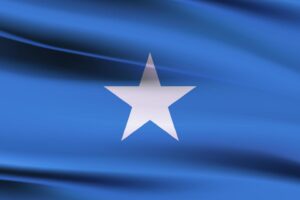
1.1 The East and Horn of Africa Human Rights Defenders Project (DefendDefenders) is a regional CSO registered and based in Uganda. Established in 2005,
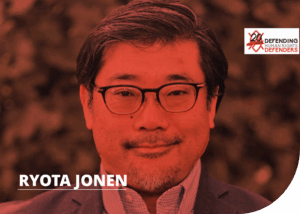
There are individuals who have watched – from a front-row seat vantage point – the evolution of DefendDefenders, from its inception 20 years ago to the present day. World Movement for Democracy’s former director, Ryota Jonen, is among those close and trusted allies who have stood the test of time. He recalls how a much younger DefendDefenders made a lasting impression on him at the 2009 “Jo’burg +10” event.
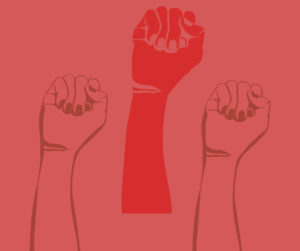
DefendDefenders (the East and Horn of Africa Human Rights Defenders Project) welcomes the opportunity offered by the 85th ordinary session of the African Commission on Human and Peoples’ Rights (hereafter “the Commission”) to highlight the most pressing human rights issues in the East and Horn of Africa sub-region for the period May to October 2025.

DefendDefenders (the East and Horn of Africa Human Rights Defenders Project) welcomes the opportunity provided by the 85th Ordinary Session of the African Commission on Human and Peoples’ Rights (ACHPR) to present an overview of the state of democracy, rule of law, and human rights in the East and Horn of Africa.
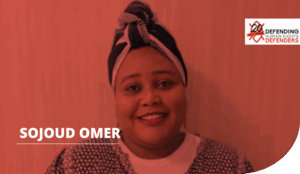
“Quite early in my career, when I was working with the UN Peacekeeping Mission in Sudan, I experienced firsthand just how dangerous human rights work can be. Some of my colleagues and I were detained from 8am to 8pm, and we were interrogated for hours before being released. But that ordeal only made me more determined and committed to the cause, and over the years, I have faced repeated threats, intimidation and targeting due to my journalism work and human rights advocacy.”